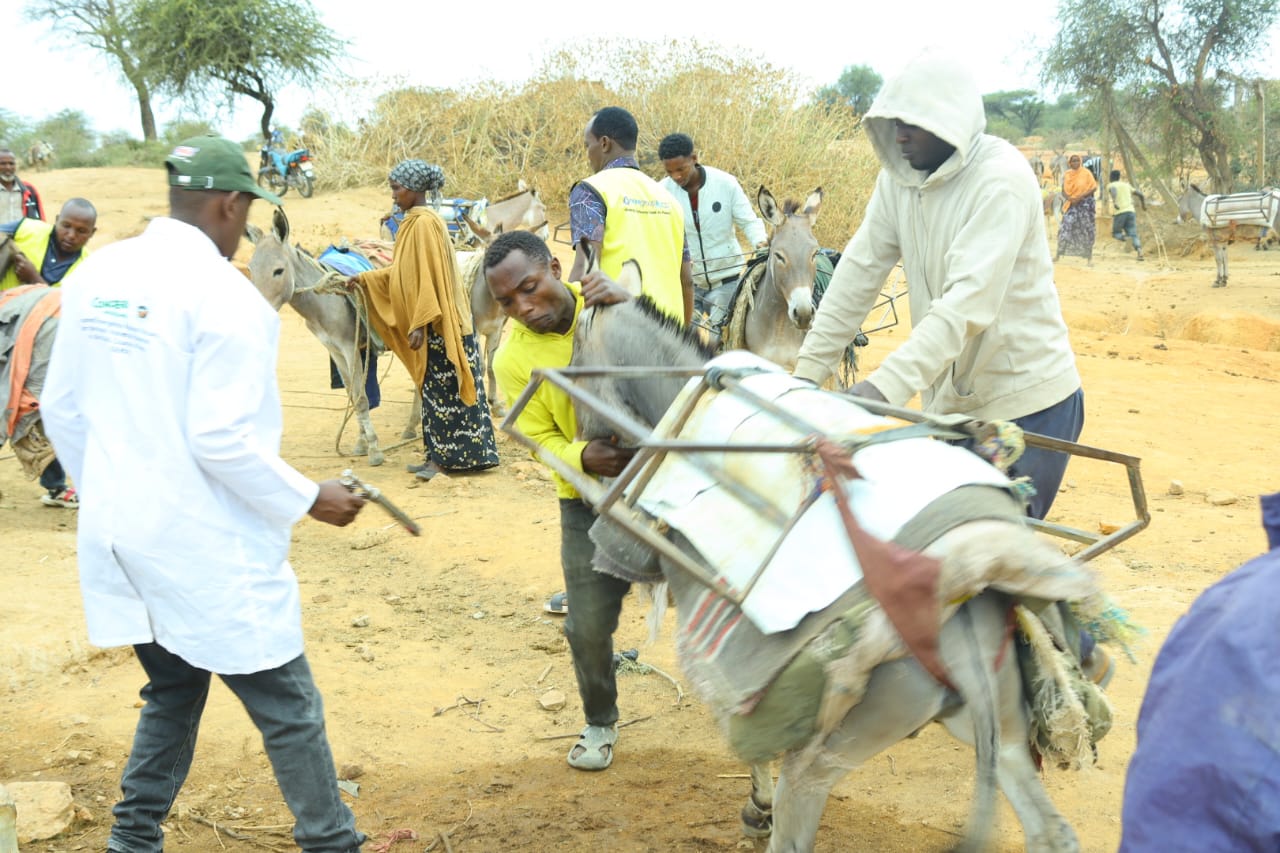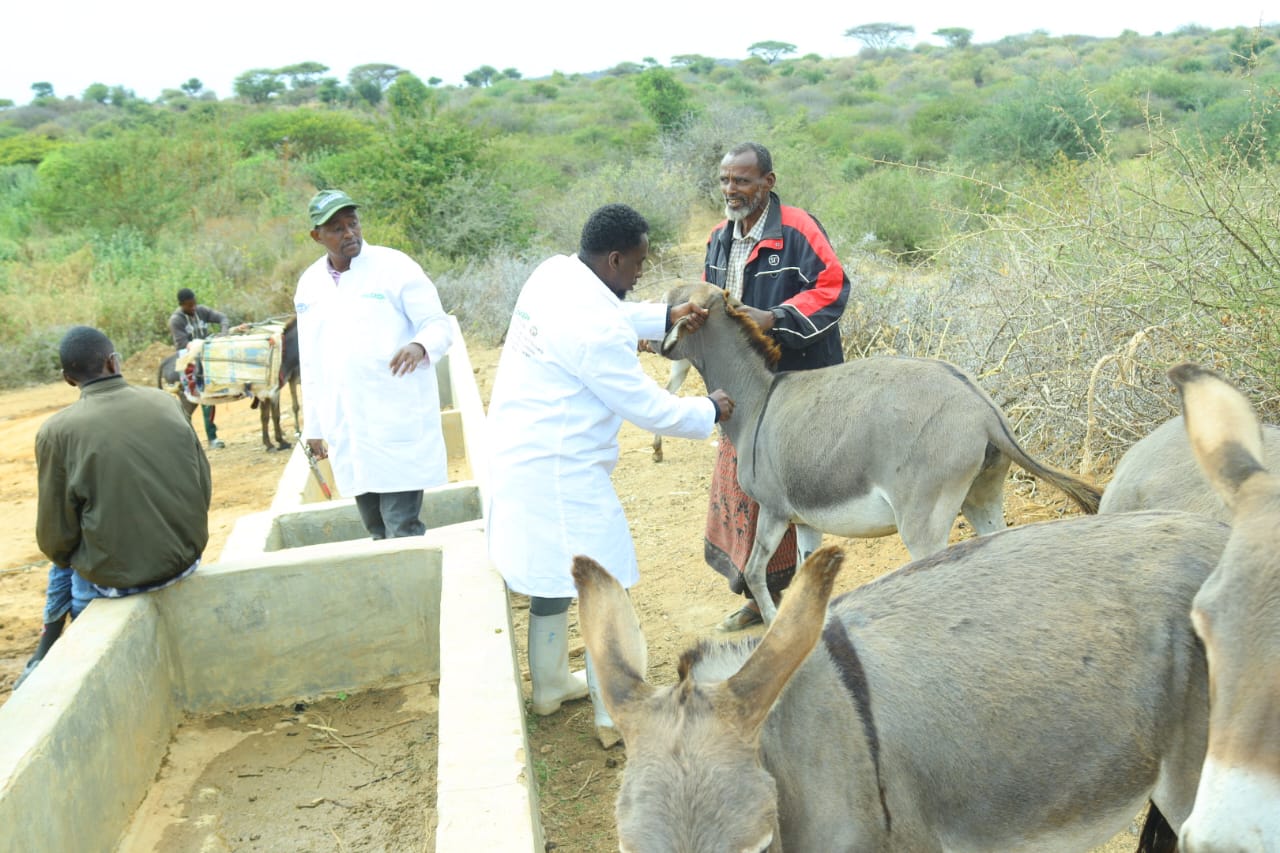

African Network
for Animal
Welfare officials
during
vaccination
/STEPHEN
ASTARIKO

African Network
for Animal
Welfare officials
during
vaccination
/STEPHEN
ASTARIKO
A surge in donkey thefts in Marsabit county has sparked growing concern among residents, threatening livelihoods in a region where donkeys are far more than beasts of burden — they are a lifeline.
In the arid county that borders Ethiopia, donkeys carry water, firewood and even ferry goods to market.. But increasingly, they have fallen prey to criminals who are stealing them.
Dennis Bahati of the African Network for Animal Welfare described the trend as alarming and called for a united response to curb it.
He spoke in Moyale during a three-day
anti-rabies vaccination drive.
Stolen donkeys are reportedly smuggled to towns such as Nakuru, where they are
slaughtered for meat and hides. The hides are shipped to Asia to make ejiao,
a gelatin believed to have medicinal and cosmetic properties.
“Reports indicate that around 4.8 million donkeys are slaughtered annually for their skins to meet this demand,” Bahati said.
“This extractive, unregulated trade poses huge risks to
animal welfare, public health and the environment.”
Abdi Galgalo, a resident of Marsabit, said they are now forced to keep constant watch over their animals.
“Donkeys are everything here. They carry water and firewood for us and take goods to the market. It really
pains us when somebody targets them for theft. We are a stressed lot,” he said.
Galgalo's fears were underscored by recent
incidents, including the arrest of two people in Limuru, caught secretly
slaughtering donkeys in the bush.
Residents also worry about health
risks. “Such acts not only decimate donkey populations but also risk contaminating
the beef supply chain with unregulated meat,” said Mohamed Jarso, another
concerned resident.
Kenya banned donkey slaughter in 2020, shutting down four licensed abattoirs.
But the ban was overturned in 2021 after business owners moved to court. Since then, donkey populations have plummeted, dropping by nearly a million between 2019 and 2020 alone.
Today,
only about 1.1 million remain in the country.
Meanwhile, community engagement programmes in Marsabit have helped end another troubling practice.
Anaw, which works with county officials and local welfare mobilisers, successfully persuaded
residents to abandon a ritual in which donkey owners fed their animals bhang
(cannabis) to make them work harder and longer.
The practice, imported from Ethiopia
and Somalia, had been normalised, shocking outsiders who witnessed it. Today,
locals say the cruel ritual has been abandoned.
“We can confirm this practice no
longer happens in Moyale. The community has understood the cruelty involved and
embraced better ways of caring for their animals,” said Dr. Bahati.
For Marsabit residents, the hope now is that the same collective will can protect their donkeys from theft — and preserve a lifeline that sustains families across the region.
















![[PHOTOS] How ODM@20 dinner went down](/_next/image?url=https%3A%2F%2Fcdn.radioafrica.digital%2Fimage%2F2025%2F11%2F99d04439-7d94-4ec5-8e18-899441a55b21.jpg&w=3840&q=100)
